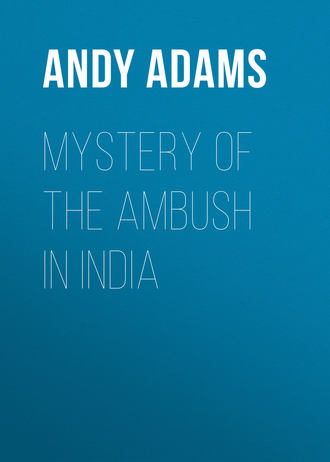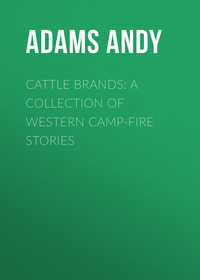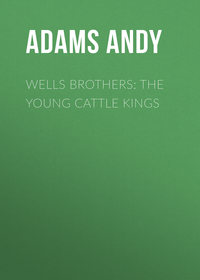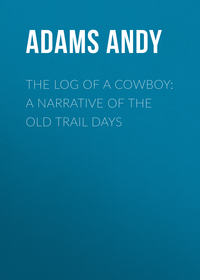 полная версия
полная версияMystery of the Ambush in India
Coolly, Charles Keene zoomed over two low-lying mountain ranges, then banked his plane toward a wide space where a trace of green showed deep beneath the gathering mist. The white blanket thickened as he approached it, and the plane, as it descended, was swallowed completely in those swirling folds. The roar of the motor was muffled; then it, too, faded entirely.
Silence reigned again above the mist-filled valleys of the Himalayas, the strange, mysterious stillness that the mightiest of mountains had known since the dawn of time.
XV
The Caravan Halts
“So this is Srinagar!”
Biff Brewster spoke from the bow of a narrow, rakish craft known as a shikara, as two turbaned oarsmen propelled it along the River Jhelum through the heart of Kashmir’s capital city. Between Biff and the stern, where both paddlers were seated, was a large canopy mounted on ornamental poles. Reclining beneath it were Chandra, Kamuka, and Mike Arista.
The front of the canopy bore the boat’s name, Happy Daze, for these gondolas of the Himalayan Venice were particularly popular with American visitors. As they swept along beneath the ancient wooden bridges that spanned the Jhelum, the boys waved to passengers in passing shikaras with signs bearing such varied titles as Hot Dog, The Big Mo, and Chattanooga Choo Choo.
Picturesque buildings flanked both sides of the waterway, and beneath their balconies were native craft called dungas, on which whole families lived. Far more pretentious were the lavish houseboats occupied by Europeans and Americans. These were more in evidence after the shikara brought them to the Dal Gate, the outlet for Dal Lake.
From there, they followed more canals to the lake itself, where they wove among actual floating gardens to the five-mile stretch of open water beyond. Sunset was tingeing Dal Lake with a deep crimson that purpled the blue lake and its surrounding foliage against the magnificent backdrop of the snow-clad Himalayas.
“Fine sunset,” Kamuka appraised it. “Much better than on the Hooghly.”
“And all we need,” commented Biff, studying the mirrored sunset in the placid water, “is for a bore to come roaring down the lake. This water buggy would really wind up in a happy daze.”
Even that imaginary menace was ended when they reached their destination, a houseboat named Pride of the Deodars. This was a stout ship in its own right, measuring 120 feet from “stem to stern” as Biff put it, with a width or beam of 16 feet. Before taking off from New Delhi, Colonel Gorak had engaged the Pride of the Deodars for their overnight stay in Srinagar and had come directly here while the boys were taking their river trip.
Smilingly, the colonel showed them through an actual floating mansion, for the Pride, as the boys promptly called it, had a huge living room and a sizable dining room, each with a fireplace, plus three bedrooms with private baths. A native chef served a tasty dinner from the ample kitchen. After the meal, the boys went to the living room. They were seated in front of the fireplace, when a light glimmered cautiously from the water close by, and they heard a shikara scrape alongside the Pride.
“Barma Shah,” stated Colonel Gorak. “I contacted him at the address in Simla.” Gorak turned to Biff. “I have never met him, so you can introduce us.”
When Barma Shah entered, he was wearing his beret and tinted glasses, as excellent a disguise as ever, for when he removed them, his complexion changed in color and his face seemed to broaden, probably because of his widespread ears. His high forehead and short-clipped hair were deceptive, too, for the beret had hidden them well. Colonel Gorak nodded his approval.
“I can understand why you have managed to stay undercover,” Gorak declared. “I have dozens of reports from men who have contacted you at one time or another” – the colonel gestured to an attaché case on the table – “but not one could give more than a vague description of you.”
“Unfortunately, most of those who knew me best are gone,” returned Barma Shah, in a regretful tone. “They were marked for death, as I have been.”
“I know that,” nodded Colonel Gorak. “All of you were in constant danger from all sides when you tried to quell those riots between rival factions, especially in Calcutta.”
“The danger still is great,” declared Barma Shah, “and that is why I show myself so seldom. During the past year or more, only two men really met me face to face, so far as learning my identity. One was Diwan Chand; the other, Thomas Brewster. Recently, of course” – he gestured toward Biff and his companions – “I told these boys who I was, because once I was clear of Calcutta, I felt the need for secrecy was gone. So now” – Barma Shah finished with a bow – “we meet at last, Colonel Gorak.”
“And the meeting is a timely one,” returned Gorak, “because you are the man who can help us most.”
The colonel spread a large map of Kashmir on the table, ran his finger from Srinagar eastward to Leh, the principal city of Ladakh. Then he inched it, zig-zag fashion, toward the boundary between India and Tibet, which was marked with a dotted line, indicating its uncertainty.
“Charles Keene will meet you in Leh,” explained Colonel Gorak, “or at one of your later stopping points. When you reach the vicinity of Chonsi – wherever it may be – you will be contacted and guided to that lost city.”
Barma Shah looked up, slightly puzzled. “You aren’t coming with us, Colonel Gorak?” he asked.
“No. This is not a military mission, nor even an official expedition. Mr. Brewster went there on his own and personally promised to deliver the Rajah’s ruby to the Chonsi Lama, once the gem was found. Since the descendants of the Rajah were supposed to deliver it to the successor of the Lama, tradition demands that Mr. Brewster’s promise be fulfilled by his son.
“Again, in keeping with tradition, the boy should be accompanied by someone close of kin, so we have chosen his Uncle Charles for that purpose. And since you, Barma Shah, played the vital part in recovering the lost ruby, you are entitled to go along as its temporary guardian.”
As Colonel Gorak finished, Barma Shah smiled.
“You should have picked Diwan Chand for my job,” he said, “but as for going along, I don’t think Diwan Chand would have. So I guess I’ll have to do.”
“You will do very well. Any more questions?”
“Just one, Colonel. What about the Chonsi Lama? Have you any reports on him?”
“Nearly twenty years ago,” stated Colonel Gorak, “the Chonsi Lama visited Leh and received a tremendous ovation. He was then a man in his early thirties and impressed all who met him with his great vigor and his keen mind. In the years since, the Chonsi Lama has preserved the balance of the border. He has refused to listen to the demands of dictators who have tried to curb his power. They are unable to oust him because they cannot find him.”
“And all the while his influence has increased?” Barma Shah inquired.
“Yes. Today, the Chonsi Lama is regarded as one of the wisest men in the East and, without a doubt, the most mysterious. No one has seen him since that time in Leh, but he has been heard from often, and his well-weighed decisions have increased his fame. Now in his early fifties, he is probably at the peak of his career – that is, if Lamas have careers. When one dies, his spirit is supposed to be reincarnated in an infant born at that same time, who then continues on as a Living Buddha.”
Biff and the other boys wanted to hear more on that intriguing subject, but Barma Shah asked:
“Will anyone block us between Leh and Chonsi?”
“One man will if he can,” returned Gorak grimly. “That is Bela Kron, who heads the international spy ring. Have you ever run across him here in India?”
“No, but I would like to.” Barma Shah gritted his teeth and clenched his fists. “I would repay him in kind for the way he tortured some of my friends.”
“I know.” Colonel Gorak tapped the attaché case significantly. “The reports are all in here. But would you recognize Bela Kron if you saw him?”
“No, because I could not possibly have met him. Brewster may have, around those mines in Bildapore, but Bela Kron would have been very wary, any time he came to Calcutta.”
That ended the conference for the evening. Tingling with excitement, the boys found it difficult to go to sleep, even in the luxurious houseboat. When they finally did drop off, the night seemed very short indeed, for Colonel Gorak woke them early for their morning flight to Leh.
The five-hundred-mile trip was interesting, for below, the boys saw samples of the rugged terrain that they would have to cover later on. The nearest thing to a road was a crude trail that led through mountain passes twelve thousand feet in altitude, where the plane flew low between the hemming Himalaya ranges. There were occasional squatty villages and Buddhist monasteries perched high upon the mountainsides. These gave an idea of what Chonsi would be like if ever they found the place.
The immediate objective was Leh, and it proved interesting when they landed there. Though a town of only a few thousand inhabitants, its bazaars showed a mingling of many races including tribes in outlandish costumes, for this was the trade center where goods came in from Tibet by caravan. Biff and his companions found the equipment ready and the arrangements all made for their trek to the border. But Charles Keene and his Cessna had not yet arrived.
For two full days they waited, with the strain continually increasing. The only news was a roundabout report from Katmandu, stating that the Cessna had put down there and then resumed its flight, on the very day that Biff and his companions had flown from New Delhi up to Srinagar. On the third day, Colonel Gorak, who had come along this far, decided that the caravan must start. Barma Shah agreed.
“There is still a chance that your uncle’s plane made a safe landing,” Gorak told Biff. “But by now he will suppose that you have left Leh, so there is no need of staying here.”
“In fact, it would be a mistake,” declared Barma Shah, “for your uncle has our schedule and may be expecting us at one of the stopping posts. We are already a day late, but the first two stages are short, so we can make them in a single day.”
Paced by plodding, heavily laden yaks, they made the required distance by nightfall. Their course was toward the glistening mountains to the south, but the whiteness that worried Biff was not the snow upon the Himalayan summits. The thick clouds surrounding the lower levels were the menace. They filled the passes and the valleys beyond, the only places where the plane could have made a landing.
By morning the clouds were heavier still, and Barma Shah was anxious to make an early start because of the threatening snow. Biff pleaded with him to wait, so they did for another hour, studying the increasing snow clouds.
“It’s no use,” Barma Shah decided finally. “We can hardly see the slopes now. Anyone coming through those passes would have to turn back.”
Biff nodded hopelessly. But as he took one last look through a pair of field glasses, he was sure he detected motion in the distant haze. Then, against the snowy background, he saw three figures. One paused as they struggled forward and waved his arms in a characteristic gesture.
Excitedly, Biff exclaimed, “Uncle Charlie!”
XVI
The Bamboo Bridge
Biff and the three boys with him started forward on the run to meet Charles Keene and his companions. They soon saw that one of the pair was Li, and since the other was about his size, it only took one guess for Biff to name him: “Chuba!” But by the time the two groups met, Biff had another name in mind as well. The first words he put were:
“Where’s Muscles? Wasn’t he along with you?”
“Muscles is all right,” Charles Keene assured him. “We are, too, but we had to speed up our pace the last few miles, otherwise we wouldn’t have made it. When I get a cup of hot coffee, I’ll tell you all about it.”
Li and Chuba were just too winded to talk at all. When they reached the caravan, Barma Shah decided to delay the start until they had rested. That gave Charles Keene time to tell their story. He related how clouds had enveloped their plane high in the Himalayas.
“Rather than hit a mountain,” he said, “we chanced a landing in a valley. Fortunately it was a deep one, and the fog hadn’t fully settled. All of a sudden, green fields smacked right up at us. We banged up the plane some, but not too badly. What happened next was the odd part.”
Charles Keene paused to drink half his cup of coffee in one long, grateful swallow. Meanwhile, Li and Chuba couldn’t wait to pick the story up from there.
“A lot of natives wearing goat skins came rushing up to the plane,” declared Li. “We thought they were going to mob us.”
“They were shouting ‘Yeti! Yeti!’ over and over,” put in Chuba, “but before we could find out what they meant, Muscles went after them. You should have seen them run.”
Charles Keene laid aside his empty cup.
“Later, they came creeping back,” he said, “and we made friends with them. So we didn’t ask what they meant by shouting – ”
He stopped suddenly, as Barma Shah made frantic gestures for silence. A Ladakhi porter was standing by, staring with dark, narrowed eyes. Barma Shah told the man to bring some more hot coffee. Then, when he was gone, Barma Shah confided:
“Don’t mention the word Yeti to these people. You have heard of the giant ape-man of the Himalayas, haven’t you? The creature they call the Abominable Snowman? That’s their name for it: Yeti – ”
“I remember now!” exclaimed Charles Keene. “I was sure I’d heard the word before. But I thought that yarn was spiked long ago.”
“Not in these mountains,” rejoined Barma Shah. “Here in Ladakh, as well as Kashmir, Sikkim, Bhutan, Nepal, Tibet, and even as far away as Yarkand, the Yeti is very real. The natives will run away if they even think such a creature is around.”
“And we thought they meant the plane!” exclaimed Li.
“Yes, because we came down from the sky like a big bird,” added Chuba. “Bigger than they ever saw before.”
“They may have blamed the Yeti for bringing such a monster,” commented Barma Shah. “But here comes the porter with the coffee. So let us avoid the word from now on.”
“But where is Muscles?” queried Biff.
“Back in the valley, looking after the plane,” explained his uncle. “Some of the tribesmen —Sherpas they call themselves – guided us over to the mountain pass and then returned to their valley. We miscalculated slightly or we would have been here sooner.”
Despite the delay, the caravan completed its next stage ahead of the impending snowstorm. The patient yaks, creatures that resemble both the ox and the American buffalo, with long hair like the fleece of a sheep, responded to continued prodding as though they recognized the need for hurry. Tikse, the chief porter and head yak driver, had a comment on that score.
“Listen and you hear yak grunt,” he told the boys. “That means two things.”
“And what are those?” asked Biff.
“One thing, yak like what happen, yes. Other thing, yak do not like what happen, no.”
“And how,” queried Mike, “do you tell the grunts apart?”
“No way to tell,” replied Tikse. “Yak grunt the same exactly, whichever way he feel. But it is important just the same.”
“And what makes it so important,” demanded Li, “if you don’t know the difference?”
“You do know the difference,” returned Tikse. “When yak give grunt, he feel one way or other, maybe both. When yak do not give grunt, yak do not care.”
“But why,” asked Chuba, “should yaks feel both good and bad?”
“These yaks feel good,” explained Tikse, “because they know they get to shelter ahead of snow. They feel bad because we make them hurry. So they say both things with one grunt. Simple.”
It looked simple indeed when they reached the day’s goal, a small patch of grazing ground where dried grass spread to the foot of rocky slopes. There were stone huts for the members of the party and similar shelters for the yaks. The reason stones had been used in the construction was because there were plenty of them lying around; and nothing else. The roofs of the buildings were made of rough boards, covered with thatched leaves. They weren’t nailed down because they didn’t have to be. The builders had simply placed big stones on the roofs.
The boys turned in early and slept late, snug in their sleeping bags and shoulder to shoulder in their huts. In the morning it took three of them to ram the door open, the snow was so deep. But the yaks were up, ready and grunting – some because they liked snow; others because they hated it.
The yaks pulled the party through. They bulldozed their way through the snow, chest deep, clearing it like living snowplows, so that the people had no difficulty following them. Oddly, as the trail climbed higher, it led to barren ground, totally free from snow. Apparently, the storm clouds hadn’t managed to gain that altitude.
Early that afternoon, the party halted at a roaring mountain stream and stared at the remnants of a crude wooden bridge that had been washed away by the flood. Sadly, Tikse petted one yak after another, while the porters relieved the stolid beasts of their burdens. The boys watched Tikse turn the yaks over to two other Ladakhis, who promptly drove them off along the trail. Barma Shah explained the situation.
“We’ll have to make a footbridge,” he stated, “before the water rises too high. So Tikse is sending the yaks on to another shelter. From now on, the porters will carry our packs.”
All the while, Biff could hear a chopping sound from a short way up the narrow, turbulent stream. There was a sudden crash, and a tree came toppling down to bridge the raging torrent. Chandra appeared from the brush, carrying a heavy hand-axe.
“Bridge already set,” reported Chandra. “It just needs one thing more – ”
“It needs much more.” The interruption came from a squatty, broadly built porter named Hurdu, as he tested the tree with a clumsy foot. “We need ten more trees like this.”
“We need a rail for the bridge,” declared Chandra calmly. “Can somebody bring me a rope?”
Biff supplied a rope, and Chandra hitched one end around a tree. Like a monkey, he scrambled across the fallen tree, carrying the free end of the rope with him. A single slip and Chandra would have gone into the flood, which probably would have pleased Hurdu, who was watching intently. But Chandra was across in no time and promptly hitched the rope to a tree on the opposite bank, drawing it taut as he did.
“Now, walk across log bridge,” called Chandra, “and hold on to rope rail.”
Biff shouldered a pack and followed instructions, keeping his eyes fixed straight ahead, not on the furious current, which would have distracted him. With one hand on the rope, it was simple to steady himself while he advanced one foot, then the other. A dozen steps and he was over. Now the other boys were following his example. That was all the porters needed. They hoisted their full burdens, eighty pounds to a man, and stalked across Chandra’s simple bridge in regular procession.
Charles Keene and Barma Shah followed, as did Tikse and Hurdu, though the last two exchanged glares before they started and after they had crossed. Now that the yaks had gone their way, a dispute appeared to be in the making as to who was the chief guide of the party. Both Tikse and Hurdu wanted that honor.
The narrow path made a steep ascent up the side of a high cliff, and before the porters were out of sight of Chandra’s crude bridge, they saw the surging stream carry it away. Time had been the all-important factor, where that crossing was concerned. But an hour later, the party came to something much more formidable.
The trail swung along the fringe of a tremendous, steep-walled gorge a thousand feet in depth and a hundred or more across. Down below, a river thundered like a hungry dragon, ready to devour any human prey. Chandra was pleased to see that this chasm was already bridged, for he could have done nothing with his hand-axe.
The bridge was of a suspension type, so crude and flimsy of construction that it seemed to hover in midair. Yet it evidently was strong enough, for Barma Shah, who was up in front, started across without hesitation. Tikse and Hurdu were close behind him, followed by the long procession of porters with their heavy packs. As Biff paused to look for the other boys, he found Chuba close beside him. As usual, Chuba had a saying to fit the situation.
“Tikse and Hurdu agree on something at last,” declared Chuba. “Wise man never argue when it prove another man right.”
“You’ve got something there,” laughed Biff, as he watched Tikse and Hurdu practically crowd each other across the bridge. “Neither could afford to hesitate, or he’d be admitting that the other was boss.”
“From the look of that bridge,” observed Li, “both were lucky to get across. The same goes for us – if we make it.”
Considering that the bridge’s cables were composed of twisted strands of bamboo and rattan, with hanging vines dangling like ropes to support the roadway, Li had a point. But the other boys didn’t agree. They had seen and crossed many such primitive bridges: Chuba in Burma, Chandra in India, Kamuka in Brazil, and Mike in Mexico. Though the porters crossed at a safe distance apart, they didn’t begin to tax the bridge to its capacity.
That was proven when the boys reached the bridge and saw that its runway, fashioned from strips of bamboo laid crosswise, was wide enough to drive a yak across. As the boys crossed the bridge two abreast, Biff spoke to Chandra, who was beside him.
“Now I see why Hurdu wanted to chop down more trees back at the little stream. We could have brought the yaks along. Why wasn’t Tikse in favor of that?”
“I saw Tikse pet the yaks and say good-by,” returned Chandra. “He made grunts, like yak, saying he was both glad and sorry. Sorry because yaks had to go. Glad because it gave jobs to porters instead.”
“You’re right!” exclaimed Biff. “Colonel Gorak said the bearers were not to receive full pay until they actually took over.”
The tremendous roar of water echoed up from the steep-walled gorge, drowning further conversation until the boys were across. It might have been imagination, but Biff felt that the bridge quivered as he left it, so he turned to look back while Chandra, still beside him, was laying his pack on solid ground. They had come between a pair of upright posts that served as tower for the bridge; now they were close by the big stakes to which the rope cables were moored. There, porters were stacking their packs by dozens and sitting down to rest.
There were still several porters on the bridge, all well spaced. Behind them came Li and Chuba, for those two boys had stayed back to wait for Charles Keene, who was bringing up the rear. Biff’s uncle had taken on that duty to “keep the parade moving” as he styled it, which meant that he had been encouraging straggling porters in his own cheery, breezy way.
Li and Chuba were past the halfway mark and Uncle Charlie was almost there when Biff saw the swaying bridge give a sudden shudder. Biff thought for an instant that it was an earth tremor. Then he noticed that the porters near him were chatting, quite unconcerned. Biff gave a warning shout, too late.
With a snap like a rifle report, the rope parted from the stake at Biff’s right. With it, the entire cable slipped on that side of the bridge, tilting the runway downward. In a single second, Charles Keene, Li, Chuba, and a pair of porters were sprawling on the slippery bamboo slats, which had suddenly become a chute to certain doom in the abyss below!
XVII
The Monster of the Mountains
In the harrowing moments that followed, Biff saw two shapes go slithering off the slanted bridge and continue spinning, tumbling in huddled helpless fashion into the gaping jaws of the roaring gorge. Biff shut his eyes as they disappeared, and his mind flashed back to those tiny figures that he had seen against the snowy background of the mountain pass.
Uncle Charlie, Li, and Chuba. The boys were two of a size, like those two forms that had just plunged from the collapsing bridge. So they must be Li and Chuba – or else the two porters. But no, not the porters; those somersaulting shapes weren’t big enough. Biff tightened his fists grimly as he opened his eyes for one last hopeless look.








